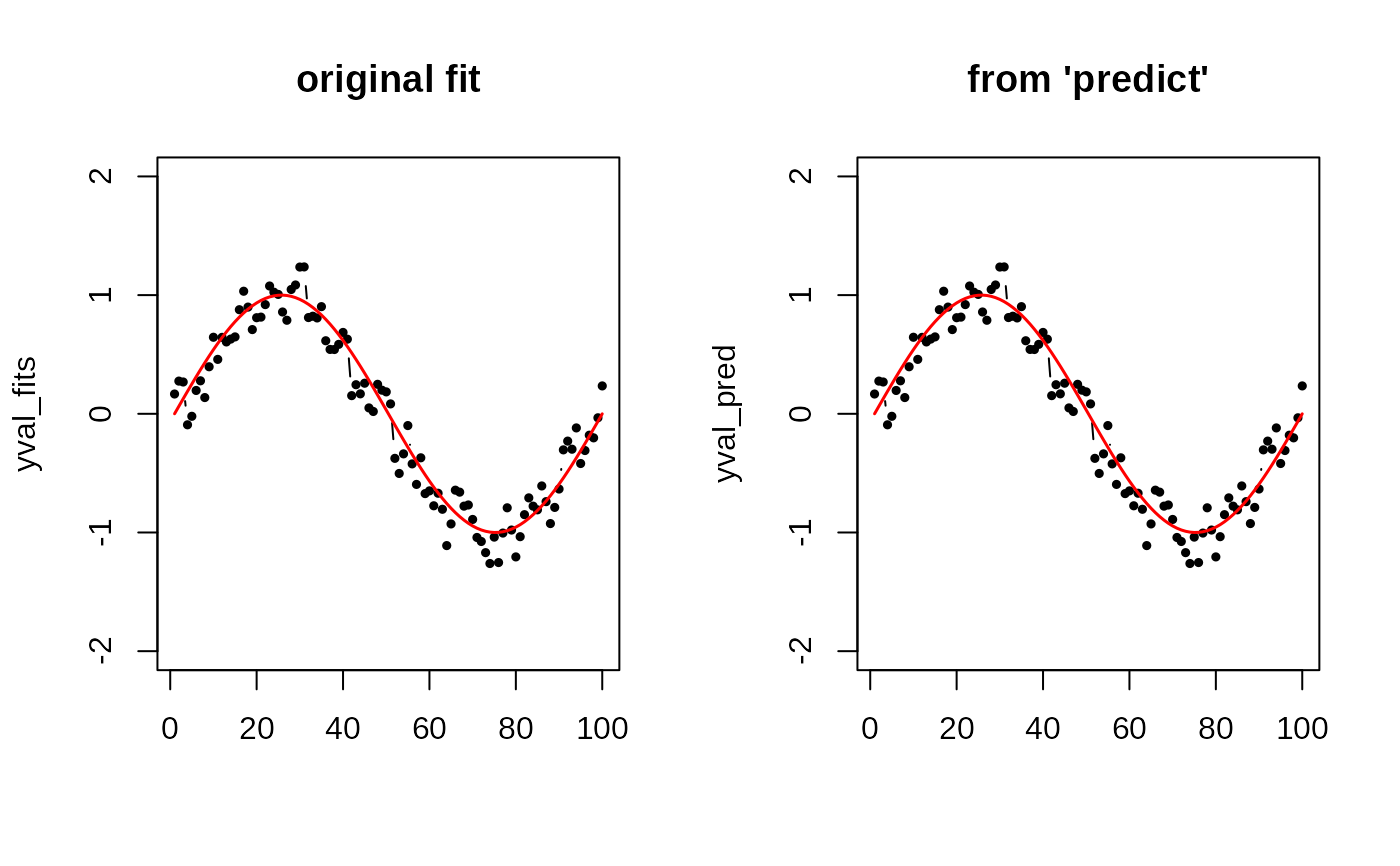
Prediction for Manifold-to-Scalar Kernel Regression
Source:R/inference_m2skreg.R
predict.m2skreg.RdGiven new observations \(X_1, X_2, \ldots, X_M \in \mathcal{M}\), plug in the data with respect to the fitted model for prediction.
Arguments
- object
an object of
m2skregclass. Seeriem.m2skregfor more details.- newdata
a S3
"riemdata"class for manifold-valued data corresponding to \(X_1,\ldots,X_M\).- geometry
(case-insensitive) name of geometry; either geodesic (
"intrinsic") or embedded ("extrinsic") geometry.- ...
further arguments passed to or from other methods.
Examples
# \donttest{
#-------------------------------------------------------------------
# Example on Sphere S^2
#
# X : equi-spaced points from (0,0,1) to (0,1,0)
# y : sin(x) with perturbation
#
# Our goal is to check whether the predict function works well
# by comparing the originally predicted values vs. those of the same data.
#-------------------------------------------------------------------
# GENERATE DATA
npts = 100
nlev = 0.25
thetas = seq(from=0, to=pi/2, length.out=npts)
Xstack = cbind(rep(0,npts), sin(thetas), cos(thetas))
Xriem = wrap.sphere(Xstack)
ytrue = sin(seq(from=0, to=2*pi, length.out=npts))
ynoise = ytrue + rnorm(npts, sd=nlev)
# FIT & PREDICT
obj_fit = riem.m2skreg(Xriem, ynoise, bandwidth=0.01)
yval_fits = obj_fit$ypred
yval_pred = predict(obj_fit, Xriem)
# VISUALIZE
xgrd <- 1:npts
opar <- par(no.readonly=TRUE)
par(mfrow=c(1,2))
plot(xgrd, yval_fits, pch=19, cex=0.5, "b", xlab="", ylim=c(-2,2), main="original fit")
lines(xgrd, ytrue, col="red", lwd=1.5)
plot(xgrd, yval_pred, pch=19, cex=0.5, "b", xlab="", ylim=c(-2,2), main="from 'predict'")
lines(xgrd, ytrue, col="red", lwd=1.5)
 par(opar)
# }
par(opar)
# }